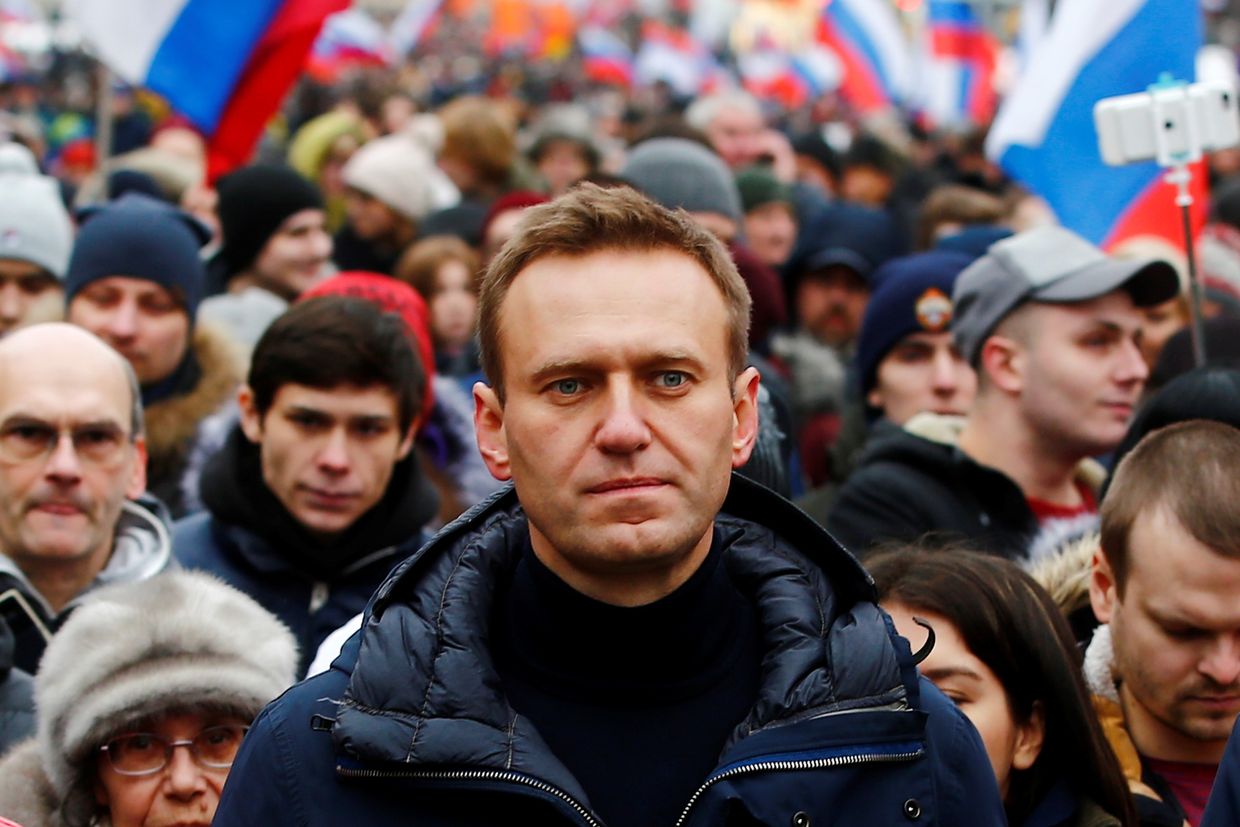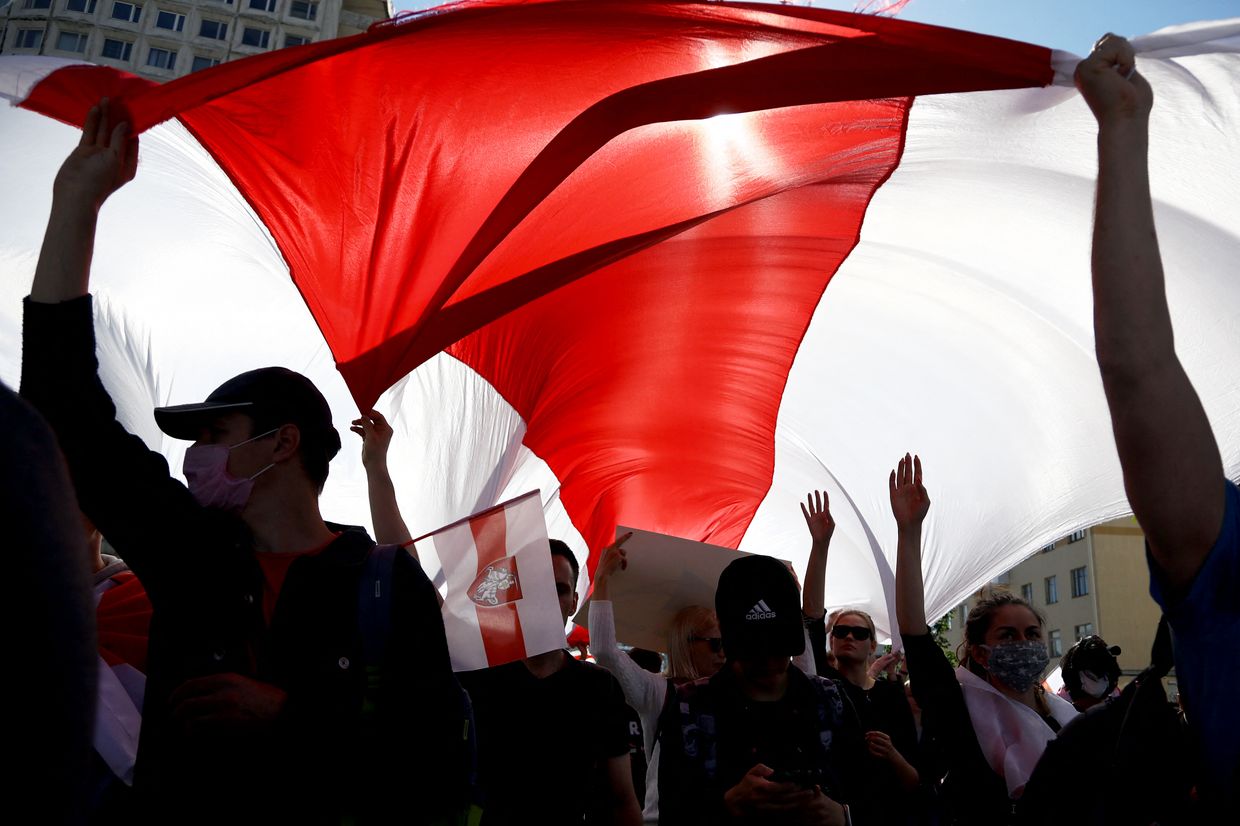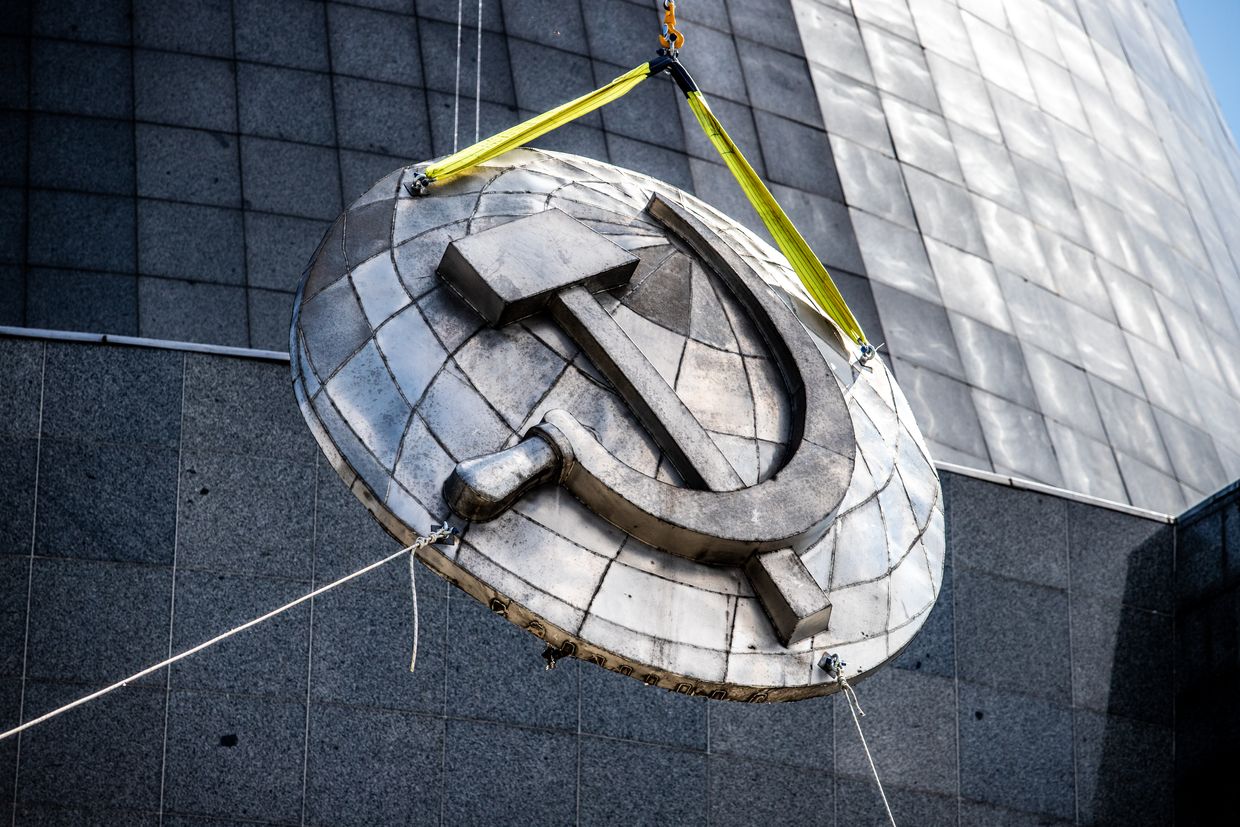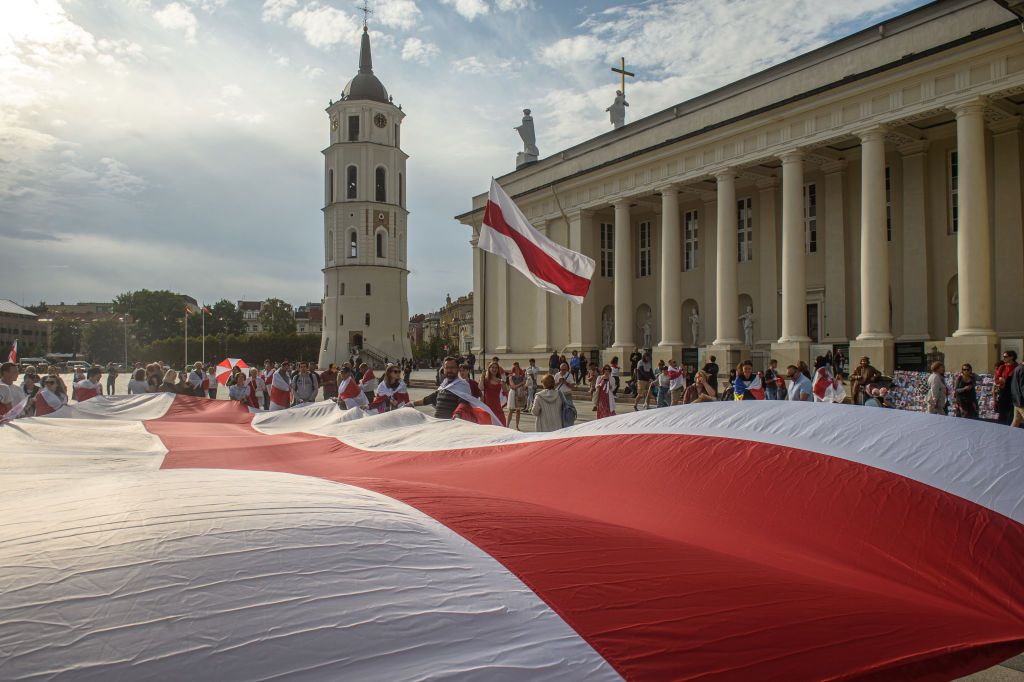Belarus Weekly: Tsikhanouskaya urges democracies to 'show their teeth' after Navalny's death

Belarusian opposition leader Sviatlana Tsikhanouskaya urged democracies to “show their teeth” after the death of Russian opposition leader Alexei Navalny in a Russian prison.
The same week, a fifth Belarusian political prisoner died in custody.
Meanwhile, early balloting for parliamentary elections in Belarus starts, with Lukashenko's law enforcers preparing to detain citizens if they cause “disruption at polling stations.”
Lukashenko claims another "sabotage group" was detained in a counterterrorist operation in a town near Belarus-Ukraine border.
Exiled former Belarusian law enforcers sentenced in absentia to up to 25 years in prison.
Raiffeisen Bank International nearing deal to sell its stake in Belarusian bank and exiting market.
Navalny’s death raises fears for Belarusian imprisoned protest leaders
Exiled Belarusian opposition leader Sviatlana Tsikhanouskaya has called for a “resolute response” to the death of Alexei Navalny in a Russian prison in the Arctic Circle.
Speaking at the Munich Security Conference in Germany on Feb. 17, Tsikhanouskaya said the regime of Russian President Vladimir Putin was responsible for Navalny’s death, and expressed concern for the fates of Belarusian political prisoners.
“The news of Navalny’s death shocked me,” Tsikhanouskaya said. “I don’t even want to think that my husband could be next. I think that the dictators are testing their limits: how far they can go without consequences.”
Tsikhanouskaya’s husband, Siarhei Tsikhanousky, was imprisoned before the 2020 Belarusian presidential election after attempting to become a candidate running against Belarusian dictator Alexander Lukashenko.

Tsikhanouskaya said that the lives of politician Mikalai Statkevich, 2020 presidential candidate Viktar Babaryka and his ally Maria Kalesnikava, as well as many others, depend on the West’s reaction to the murder of Navalny.
The Belarusian democratic leader urged democracies to “show their teeth” and to isolate the two regimes, including with “devastating sanctions.” Tsikhanouskaya also called on big tech companies to “be on the good side of history” and counter the spread of propaganda, as well as help independent media reach their audience.
One of Putin’s main political opponents, Navalny, died on Feb. 16 in a penal colony in the far north of Russia. He had been convicted in sham trials as part of the Kremlin’s crackdown on dissent.
In custody, he received additional prison terms, was isolated from communications with his family and lawyers, and faced beatings and punishment by solitary confinement.
Both the Putin and the Lukashenko regimes treat political prisoners harshly. Five political prisoners have died in custody in Belarus since 2020, with the most recent death report coming this week.
The six leaders of the 2020 nationwide protests have been held incommunicado for over a year. Neither their families nor their lawyers can reach them. There is also no publicly available proof that they are still alive.
Fifth political prisoner dies in custody in Belarus
Ihar Lednik, a political prisoner and veteran activist of the banned Belarusian Social Democratic Party (Hramada), died in custody while serving a three-year sentence on charges of insulting Lukashenko, the party press service reported on Feb. 20.
Reportedly, the 64-year-old Lednik died of cardiac arrest in a hospital where he had been taken from prison. This is the fifth death of a political prisoner behind bars in Belarus.
Detained on April 12, 2022, Lednik served 15 days of administrative arrest before criminal charges were made against him. The court disregarded Lednik’s physical condition – he had a disability due to heart disease. In June 2022, his attorney stated that Lednik’s health had deteriorated significantly, and he underwent gastrointestinal surgery in the colony.
A former prisoner who claims to have met Lednik in detention shared that Lednik was aware that he would most likely die in the colony without timely medical help.
A Belarusian court sentenced him to three years in prison over an article in the party magazine titled “Position.” Lednik argued that balance and peace in Eastern Europe are impossible without dismantling the dictatorship in Belarus and abolishing the Russia-Belarus Union State.
Political prisoners in Belarus are held in harsh conditions: They are marked with yellow tags, deprived of medical care, and subjected to arbitrary punishments and debilitating forced labor in penal colonies.
The Belarusian opposition has a “humanitarian” list of 200 prisoners, including elderly people, people with life-threatening physical conditions, and parents of underage children, who it says should be released immediately. Human rights group Viasna said that at least 25 seniors and 74 persons with disabilities and life-threatening conditions may not survive their time in prison.
Apart from Lednik, four other prisoners of the regime have not survived their politically motivated arrest.

Vitold Ashurak, a 50-year-old activist from Biarozaŭka, reportedly died of cardiac arrest on May 21, 2022, although the family suspects he was murdered. Mikalai Klimovich, a 61-year-old activist from Pinsk with a disability, died in prison two months into his sentence. Ales Pushkin, a 57-year-old artist died of a perforated ulcer without receiving medical help on July 11, 2023. And recently, Vadzim Khrasko, a 50-year-old tech industry worker, died of pneumonia while in custody.
Propaganda shows Belarus’ police training to detain voters ahead of parliamentary elections
Belarusian state-owned broadcaster CTV aired a segment on Feb. 18 showing the Belarusian police training to detain any citizens who attempt to “sabotage” the upcoming parliamentary and local elections on Feb. 25.
The footage demonstrates how Belarusian police would detain citizens for taking pictures of their ballot and queueing up at the polling station – practices that were widely observed during the 2020 campaign when citizens tried to document large-scale vote rigging by the regime.
Police also acted out an imaginary situation in which someone attempted “to set an elections committee member on fire,” and practiced intercepting drones. Senior Lukashenko regime officials observed the drills.
Belarusian Interior Minister Ivan Kubrakou announced on Feb. 13 that there would be increased security at polling stations, with Ministry of Internal Affairs Academy students, volunteers, and law enforcement veterans being brought in as extra security guards.
The upcoming Belarusian parliamentary and local elections are the country’s first elections since the disputed 2020 presidential election, which Lukashenko claimed he had won by a landslide. Public anger over the allegedly rigged vote provoked six months of countrywide protests and has caused a lasting domestic political crisis.
Sviatlana Tsikhanouskaya, the leader of the Belarusian democratic forces, who claimed that she had won the 2020 presidential race, has dismissed the upcoming vote as “non-elections.” She has called on voters to boycott the elections and for the international community not to recognize their results.
With nearly 1,500 opponents of the regime in jail, independent media and civil society destroyed, and all political parties but four pro-government ones having been banned, the Belarusian regime has completely purged all opposition.
Three alleged saboteurs detained in ‘counterterrorist operation’ in Belarus
Belarus’s KGB secret service detained Ukrainian and Belarusian “saboteurs” in a counterterrorist operation on the Belarus-Ukraine border, Lukashenko said on Feb. 16.
Speaking at an event in Minsk, Lukashenko claimed that the saboteurs were “moving explosives to commit sabotage primarily on the territory of Russia and Belarus.” He further claimed that such detentions occur “two to three times per week.”
An alleged “counterterrorist operation” was reported on Feb. 15 in a local newspaper in the southern Belarusian town of Lelchitsy, 10 kilometers from the Ukrainian border.
The Belarusian Hajun monitoring group, which reports on the movement of Russian troops in Belarus, said it had noticed five helicopters arriving on the spot, four of which carried Interior Ministry troops, while the other carried Special Operations Forces of the Belarusian military.
Local authorities maintained that the operation was part of the near-continuous military drills being conducted in the region. However, on Feb. 16, the Belarusian KGB reported that it had detained two Ukrainians, Serhiy and Pavlo Kabarchuk, and a Belarusian, Vitaly Vlasiuk, whom it accused of preparing an act of terrorism and undercover operations.
According to the Belarusian state-owned news agency BelTA, 61-year-old Serhiy Kabarchuk, a former employee of the State Border Guard Service of Ukraine, was engaged in smuggling along with his son, 30-year-old Pavlo Kabarchuk. The saboteurs were allegedly carrying explosives, and were acting on the instructions of Ukraine’s Security Service.
Independent Belarusian journalists found that the 54-year-old Belarusian detained in the operation, Vitaly Vlasiuk, is a retired military officer who appears to support Russia’s military aggression against Ukraine.
The Ukrainian State Border Guard Service spokesman, Colonel Andriy Demchenko, dismissed the allegations as an “absurd” attempt by Lukashenko to portray Ukraine as a threat to Belarus.
Exiled former Belarusian police officers sentenced in absentia to up to 25 years in prison
A Belarusian court has handed down sentences of 11 to 25 years in prison and hefty fines to six exiled former members of Belarusian law enforcement who backed nationwide anti-government protests in Belarus following the 2020 presidential elections, state-owned news agency BelTA.
During an in absentia hearing on Feb. 15, six former officers – Aliaksandr Azarau, Matsvey Kupreychyk, Ihar Loban, Andrey Astapovich, Uladzimir Zhyhar, and Aleh Talerchyk – were found guilty of inciting social hatred, plotting to seize power forcibly, and creating an extremist group called BYPOL, an organization of former Belarusian law enforcers in exile.
Azarau, the leader of BYPOL, was also charged with organizing a terrorist attack and treason, and received the harshest punishment of all six – 25 years in prison and a fine of around $123,500.
Four others – Matsvey Kupreychyk, Ihar Loban, Uladzimir Zhyhar, and Aleh Talerchyk – were sentenced to 12 years of imprisonment each. Astapovich was sentenced in absentia to 11 years in prison. The total sum of fines imposed on the five exiled officers exceeds $265,400.
Former Belarusian police officers who supported the democratic opposition in Belarus fled the country and established BYPOL. They drafted law enforcement reforms for Belarus, and gathered evidence of Belarusian law enforcers’ crimes against peaceful protesters.
Raiffeisen Bank in talks on potential exit from Belarusian market
Austrian bank Raiffeisen Bank International AG (RBI) said on Feb. 14 that negotiations with UAE investor Soven 1 Holding Limited on selling an 87.74% stake in Belarusian bank Priorbank JSC are at an advanced stage.
If struck, the deal will likely result in the “potential exit of RBI from the Belarusian market” and a EUR 225 million loss for RBI Group – going by the difference between the purchase price and current book value of the equity of Priorbank JSC.
Belarusian media reported in April 2023 that RBI was considering options for the sale of its Russian and Belarusian subsidiaries in the wake of Russia’s war against Ukraine and the imposition of Western sanctions.















